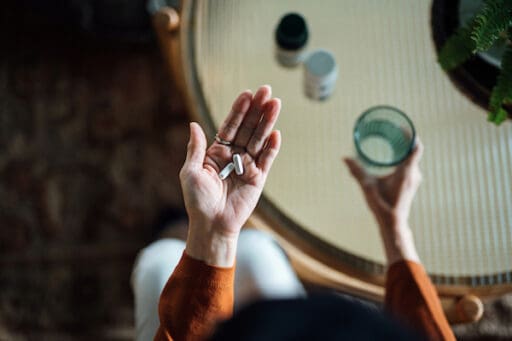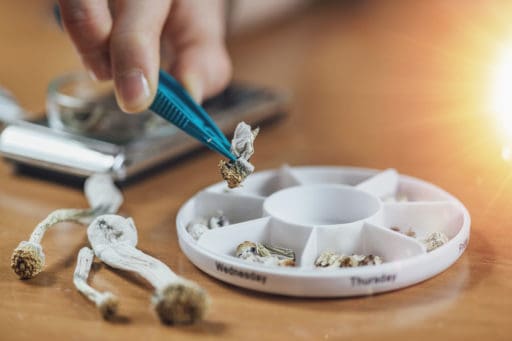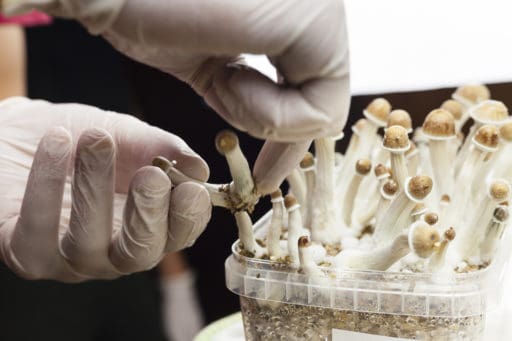Intrusive thoughts of suicide are one of the many possible manifestations of Depression, obsessive-compulsive disorder, postpartum Depression, and other psychiatric conditions. Despite advances in mental health treatment, suicide remains a
Bilateral Theta Burst TMS
As research in the burgeoning field of transcranial magnetic stimulation (TMS) continues to expand, new treatment methodologies have continued to emerge. One such approach involves the use of theta burst
What is D-Cycloserine: How to Repurpose this Antibiotic
Innovation in modern medicine doesn’t always necessitate the invention of new drugs; in some cases, existing medications may be repurposed. One such interesting case is how the antibiotic D-cycloserine might
What to Know Before Trying Mushrooms For Your Depression
What is Psychedelic-Assisted Psychotherapy (PAP)? Beginning in the late 1990s but expanding especially in the past few years, studies have been conducted demonstrating the potential benefits of psychedelics in helping
How to Support Someone in Mental Health Treatment
Learning how to support someone receiving treatment for mental health conditions can make a world of difference for your loved one. Whether someone you know is facing a crisis or
Sedation: A Common Side Effect of Antidepressants
There are many forms of treatment that individuals can use in order to treat depression, as well as other mental illnesses. Antidepressants are a common method of treatment. However, as
How Psilocybin Helps Depression
While psychedelic agents like psilocybin have a history of recreational use, studies about how psilocybin helps depression are on the rise. Researchers are eager to understand how psychoactive mushrooms and
When to Go to Therapy: The Signs You Should Notice
Therapy has become more and more normalized in current times. With mental health awareness being such an important topic, more individuals are choosing to go to therapy. A common misconception
Accelerated TMS: What Is It?
What is accelerated TMS, and how does it work? How is it different from standard, non-accelerated TMS? TMS, or transcranial magnetic stimulation, is a pharmaceutical-free depression treatment. Using magnetic pulses
rTMS Treatment for Trichotillomania
Psychiatric conditions can be very complex and difficult to treat. Many of the standard treatment procedures do not work on every patient, forcing them to turn to other methods of










